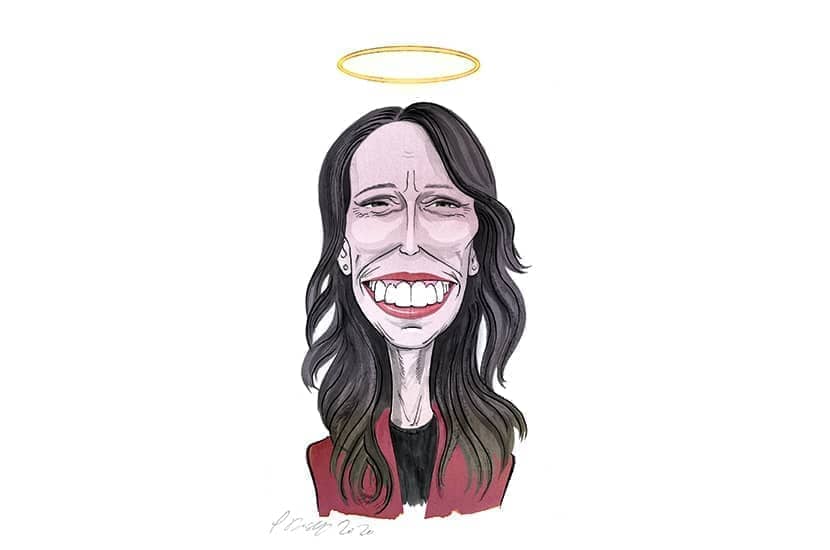Wellington
Jacinda Ardern recently told an American television host that she finds it ‘slightly offensive’ when outsiders assume every other New Zealander starred in Lord of the Rings. Quite so. New Zealand has only one real film star in 2022, and that’s the Prime Minister herself. But the way things are heading, she might best suit an adaptation of Lord of the Flies.
The place has gone mad. Many countries, even nearby Australia, have responded to the arrival of the Omicron variant by drastically easing many of their formerly draconian measures in response to Covid, in particular the widespread use of lockdowns, or what some might prefer to describe as mass house arrests. New Zealand’s government is not one of them.
According to the latest announcement, anyone known to be infected will now be required to lock themselves in their homes for 14 days. That is only the start of it, however, because anyone else in the house automatically becomes classified as a close contact; they must also now ‘isolate’ for the same period and then for an additional ten days as well. And if it so happens in those last ten days that one of the previously un-infected close contacts in your house tests positive then the whole process starts all over again. If Omicron spreads as quickly here as it has in other countries, it seems possible that at some point nearly every household will be forced into isolation.
Fortress New Zealand has also just closed its borders completely to outsiders. Tourists, visa-holders and citizens abroad will no longer be able to access the mandatory managed isolation and quarantine facilities that newcomers are required to pass through in order to visit. No date has been given for when the old system will resume.
Political opinion almost always tends to lag behind events, so it was pretty much guaranteed that something like the Covid crisis would ease before official anxiety would. Even so, at a time when many countries are doing all they can to return to some kind of normality, this latest swerve comes as a shock. What makes Ardern’s Omicron announcement even madder is that 77 per cent of Kiwis are fully vaccinated — a much higher proportion of the population than in most countries in the world, including the UK. If we are still facing such draconian measures now, it is hard to see how we will ever escape them.
Most striking of all, though, is the question of how any political leader this side of China could do all this without so much as the mildest challenge from what passes for the local media and scientific establishment, much less the culture at large.
There’s no disputing that Ardern and her ‘team of five million’, as she put it, have made it through the pandemic in pretty good collective shape. New Zealand — which has fewer intensive care beds per head than almost any other country in the OECD — has had just 52 Covid deaths in the past two years. On the other hand, it was always possible that Ardern’s apparent success in riding the pandemic wave may simply have been one of the perks of leading a sparsely populated, far-flung island nation.
It has also been her good fortune to be in charge of what has long been recognised as a politically demure populace. Kiwis are not politically screamy like the Americans, still less given to kicking back against bureaucracy like the British. Shortly after arriving in New Zealand from London in the late 1930s, Karl Popper marvelled over what appeared to him to be ‘the most easily governed’ people on the face of the earth. The champion of open societies did not mean this as an un-alloyed compliment.
When it comes to Ardern, the international media is fairly easily governed too, as any random internet search will show. ‘The most effective leader on the planet,’ according to the Atlantic; a global headmistress in the ‘masterclass’ of world leadership, breathed the New York Times; and an ecclesiastical headline from the Financial Times proclaimed: ‘Arise, Saint Jacinda!’
For many New Zealanders, faith in Saint Jacinda is starting to fade. Her poll ratings have been dropping fast since the end of last year, although she is still far ahead of her competition. As many of us face the enforced privacy of our gated living rooms in the coming weeks, perhaps more will ask: how does she get away with it?
Announcing the punishing new rules, Ardern was quick to point out that she, too, will be paying something of a personal price with the cancellation of her own imminent wedding plans.
‘Such is life,’ she said with a rueful smile.





Comments